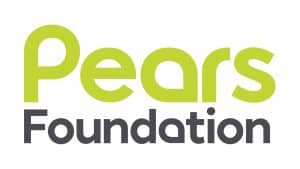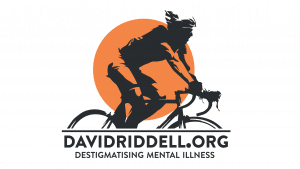It’s hard to believe that we are approaching the end of another year and what a jam-packed year it has been for the Children and Young People’s Mental Health Coalition. We started the year welcoming our new Chair, Amy Whitelock Gibbs, to the Coalition, and ended with a brand new strategy, which will shape our work for the next three years. Our staff team has also expanded this year as we welcomed Zainab Shafan-Azhar as our new Policy and Public Affairs Assistant.
The Coalition membership continues to grow, and we now have nearly 300 members. We would like to say a massive thank you to all of our members for their continued support, and for the work you do to support the mental health of babies, children and young people.
Our highlights of 2023 include:
In June, we were proud to launch our behaviour and mental health in schools report. This followed a year-long inquiry where we explored the links between behaviour and mental health, and looked at what can be done to improve both behaviour and mental health in schools. We spoke to hundreds of young people, parents, carers and professionals to understand their views and experiences.
We found that the underlying drivers of behaviour are much more complex than is sometimes assumed. We heard how persistent poor behaviour in the classroom may be an indication that a child or young person has an unmet or undiagnosed need or is struggling to communicate or to regulate themselves. The young people, parents and carers, and professionals who gave evidence to the inquiry highlighted that a young person’s behaviour is linked to both their mental health and to their special educational needs and disabilities.
Our findings also suggest that punitive approaches to behaviour management, such as the use of removal rooms and exclusion, may be harming children and young people’s mental health, and that these approaches may not even be effective in improving behaviour in the long-term. This is because they do not address the underlying drivers of the behaviour.
The report calls for a wholescale culture shift in how behaviour is viewed and responded to in schools, including full implementation of whole education approaches to mental health and wellbeing in order to build supportive and inclusive school environments.
You can read more about our findings and recommendations for change in our full inquiry report or watch our animation.
We were delighted to work with the Maternal Mental Health Alliance this year to publish a report on the maternal mental health experiences of young mums aged 16-25. We gathered first-hand insights from young mums and conducted a rapid review of relevant literature. Through focus groups, we spoke to 20 young mums from across the UK about their experiences of service provision and support, and listened to their views on what needs to change to better support young mums and their mental health.
We found that young mothers aged 25 years and under are at increased risk of experiencing mental illness during pregnancy and after birth compared to those over 25, with postnatal depression in particular up to twice as prevalent. Sadly, the number of teenage maternal suicides has also increased in recent years.
Stigma is an influential part of young motherhood, and many of the young mums we spoke to described feeling judged by some of the health care professionals they had come into contact with. When asked what change they would like to see in terms of the support they receive, young mums overwhelmingly told us that they want non-judgemental, accessible, and flexible services that listen to them. This included being able to have concerns about their child’s health and their own health taken seriously and being made to feel valued as a parent.
You can read more about our findings and our recommendations for action to better support the needs of young mums in our final report.
Over recent years, we have seen a raft of measures to improve mental health outcomes for babies, children and young people, and the support available to them. We were commissioned by the Local Government Association to review these policies and measures to explore if they have had any impact on the children’s mental health system.
Our review uncovered that whilst many of the ambitions laid out by the Government to date have been a step in the right direction, they have been continuously criticised for not being ambitious enough in creating the scale of change that is needed. Many of the policies implemented to date have also not had sufficient impact on ensuring children and young people get the mental health support they need. As a result, far too many children and young people struggle to access timely mental health support.
You can read more about our findings and the recommendations we put forward to make positive and lasting changes for children’s mental health in our final report.
We have continued to work with our campaign partners British Association for Counselling and Psychotherapy (BACP), Centre for Mental Health, Black Thrive Global, The Children’s Society, Mind, Youth Access and YoungMinds on our #FundtheHubs campaign. The campaign calls for a national network of early support hubs to ensure that children and young people aged 11-25 can get early support with their mental health.
We were really pleased that in October, the Department for Health and Social Care announced nearly £5 million to fund early support hubs. The funding will be awarded to ten services across England to deliver new or expand existing community-based interventions. Alongside the pilots, an evaluation will also take place to explore how the funding has benefited children and young people.
This is a positive step in the right direction, and we will continue to campaign to ensure that more hubs are funded so that every young person can access early support with their mental health.
This year, we were proud to publish our new strategy for 2024-27. With a General Election on the horizon, challenges like the rising cost of living and continuing changes in technology and society at large, we decided it was time to refresh the Coalition’s strategy to make sure we have a plan fit for the future. Our new strategy was independently developed through a series of in-depth consultations with children and young people, parents and carers, member organisations, the Coalition team and Chair, the Steering Group, and key external stakeholders. You can read more about what we heard through our engagement work in our supplementary report to the strategy.
Our new strategy is made up of one promise, three priorities and four commitments. At the heart is our promise to champion the voices of babies, children and young people in all that we do. Our strategic priorities for 2024-27 are:
- A mentally healthy generation
- Early intervention for all
- Strengthening specialist services
You can read more about our priorities and commitments in our strategy document.
In the run up to the general election, we published our manifesto for babies, children and young people’s mental health, which calls on all political parties to make a strong commitment to babies, children and young people’s mental health in their election manifestos. Our manifesto outlines the changes needed to improve mental health outcomes and address enduring issues within the children’s mental health system, including:
- Committing at least an additional £1.7bn per year for Integrated Care Systems to deliver a comprehensive mental health pathway for all babies, children and young people aged 0-25.
- Embedding whole educational approaches to mental health and wellbeing across all education settings.
- Increasing the provision of early intervention support in the community through the national roll-out of early support hubs in every local area.
- Bringing forward reform of the Mental Health Act 1983, to ensure that children and young people’s rights are protected and promoted, and that they receive high quality and compassionate care.
Towards 2024
As we look ahead to the new year, we know that change is on the horizon with the possibility of a general election and a new government. This provides a real opportunity to put babies, children and young people’s mental health at the heart of the political agenda, and our role campaigning and advocating for change in the mental health system feels more important than ever. We look forward to working with members to achieve this change.






